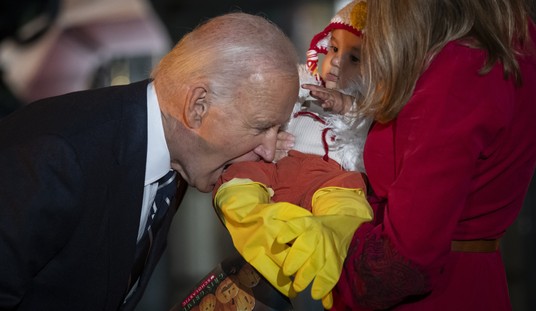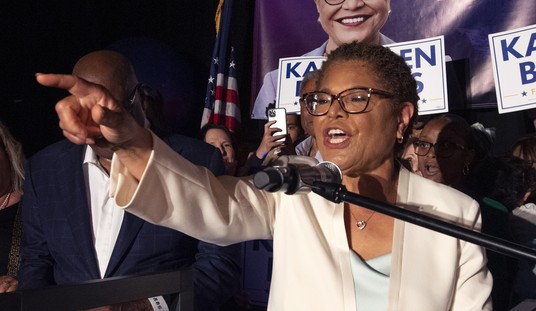When Barack Obama rejected the Keystone XL Pipeline, in his statement was an eye-opener.
Third: Shipping dirtier crude oil into our country would not increase America’s energy security. What has increased America’s energy security is our strategy over the past several years to reduce our reliance on dirty fossil fuels from unstable parts of the world. Three years ago, I set a goal to cut our oil imports in half by 2020. Between producing more oil here at home, and using less oil throughout our economy, we met that goal last year — five years early. In fact, for the first time in two decades, the United States of America now produces more oil than we buy from other countries.
Now, the truth is, the United States will continue to rely on oil and gas as we transition — as we must transition — to a clean energy economy. That transition will take some time. But it’s also going more quickly than many anticipated. Think about it. Since I took office, we’ve doubled the distance our cars will go on a gallon of gas by 2025; tripled the power we generate from the wind; multiplied the power we generate from the sun 20 times over. Our biggest and most successful businesses are going all-in on clean energy. And thanks in part to the investments we’ve made, there are already parts of America where clean power from the wind or the sun is finally cheaper than dirtier, conventional power.
It wasn’t environmental issues at all that resulted in the rejection of Keystone, rather it was a decision to force a societal and economic change upon the United States. At Vox.com
they echo Obama’s point, but give more detail in What critics of the Keystone campaign misunderstand about climate activism:
Many Keystone skeptics (“Keystone doubters”?) assume that the way to evaluate a climate activist campaign is by the carbon emissions it reduces. By that metric, Keystone seems an odd choice.
But it’s an odd metric, if you think about it. And it speaks to the odd relationship the US political establishment has always had with climate change and climate campaigners.
…
It is also ludicrous to imagine that the primary goal of climate activist campaigns is to reduce emissions. It would be like criticizing the Montgomery bus boycott because it only affected a relative handful of black people. The point of civil rights campaigns was not to free black people from discriminatory systems one at a time. It was to change the culture. “Keystone isn’t a perfect battlefield,” wrote Michael Grunwald, “but neither was Selma or Stonewall.”
…
But the other part of transitioning to a new world is contesting the legitimacy of the old one. That means taking assumptions, institutions, and technologies that have a presumptive social warrant — that are assumed necessary, legitimate, and worthwhile by default — and, God help me for using this word, problematizing them.
Fossil fuel extraction and transport projects have a presumptive social warrant. Local opposition or environmental standards may sometimes trump that warrant, but the heuristic applied defaults to positive, to yes.
…
Getting there means removing that presumptive social warrant, the default yes. It means creating a new heuristic: Fossil fuels must be reduced as fast as practically possible. It means creating a new default answer to fossil fuel infrastructure: no, unless a case can be made that the climate damage is worth it. This wouldn’t mean cutting off all fossil fuels tomorrow, despite the crude caricatures painted of activists. But it would mean steadily raising the bar, changing a defeasible presumption of innocence to a defeasible presumption of guilt.
Yesterday, I posted on anti-science “science guy” Bill Nye and his slide towards fascism. In his interview was this nugget:
…When I wrote the book, fossil fuels were at 1.8 cents per kilowatt-hour and now they’re at 1.7 cents per kilowatt-hour. But wind is now at 2.1 cents per kilowatt-hour, which mean they’re converging. Wind is now competitive with fossil fuels. Furthermore, if we were to charge a fee – oh, we must never call it a tax – on fossil fuels, wind would be way cheaper — way cheaper. And wind is just one example. There are other affordable alternatives, like solar, which in many cases pay for themselves – if only we’d invest in them.
…
First of all, in the notorious cases, [fracking] put natural gas in people’s sinks, which is horrible and lawsuits ensue, and it’s thoughtless and mean-spirited and all these things. But in the bigger picture, fracking has driven down the price of natural gas by making it abundant, especially in the U.S., which is the largest user of all this stuff. But it has slowed the development of renewables, like wind and solar, because gas is so cheap. And it has caused an increase in fugitive natural gas, which is bad for the atmosphere. The costs, in other words, clearly outweigh the benefits. Most of the confusion on fracking has to do with economics and the mean-spirited callous attitude of certain oil companies.
The climate change agenda has absolutely nothing to do with the climate or global warming. It is an offshoot of the anti-human theories of Paul Ehrlich that create false crises (in resources, in overpopulation) in order to stampede the credulous in the direct this fascists want everyone to go. The Keystone XL Pipeline arguably (though highly unlikely) could have emitted gasses which arguably (though highly unlikely) could have increase the earth’s temperature by a fraction of a degree over the next five or so centuries. But the real danger it posed was in decreasing the cost of gasoline and electricity and making “green energy” even a bigger boondoggle than it is.
As Nye tells us, the attacks on fracking have zero to do with the environment. The EPA’s own studies have shown that. The real threat of fracking is that is drives down the cost of natural gas.
When the left thinks things are going its way, they become a lot more comfortable about what they are doing. But, like reading Mein Kampf in Weimar Germany, you have to have the courage to believe that the monstrous things they say they believe in are real and not metaphor. That is our weakness as conservatives. We don’t take them seriously when they say that a one-child policy is a good thing. And we don’t take them seriously when they say they are perfectly willing to destroy the US economy to pursue their goals.















Join the conversation as a VIP Member